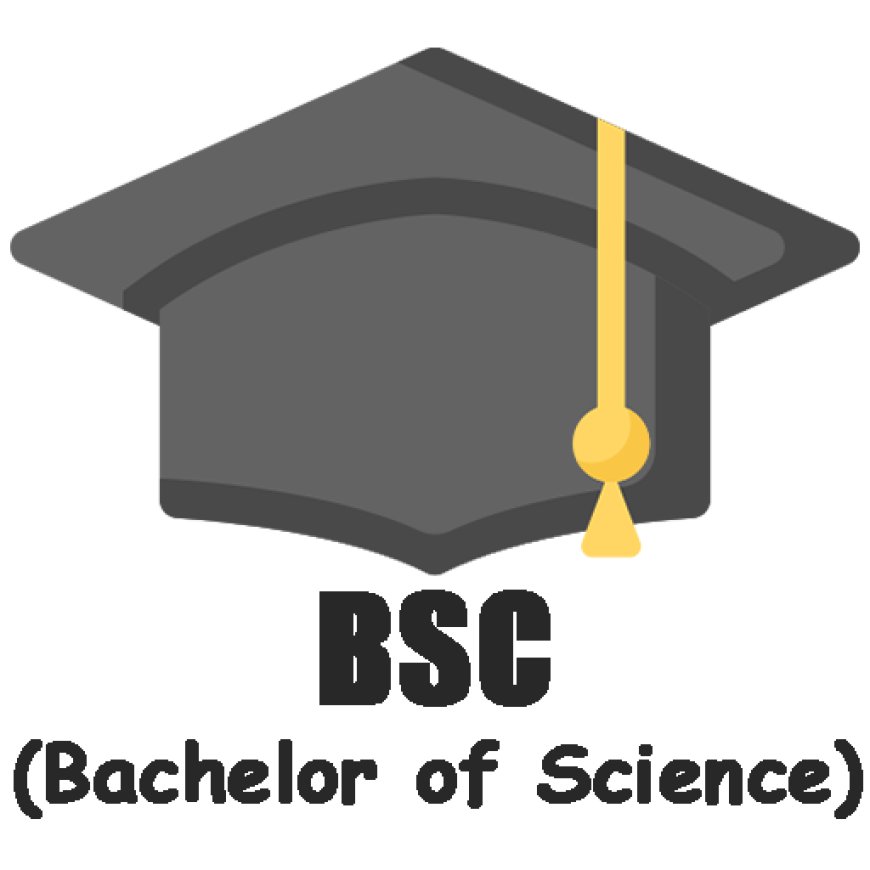The Journey of Growth with a Science-Focused Program
Explore the growth and opportunities in a BSc program, from building knowledge to gaining practical experience and launching a successful career.

Pursuing a BSc (Bachelor of Science) is more than just obtaining a degree. It's a journey that shapes your mind, builds your skills, and prepares you for a wide range of careers. A BSc program provides students with a solid understanding of scientific concepts while encouraging them to think critically and solve real-world problems. In this article, we will explore the journey through a science-focused program, from starting out to finding success after graduation.
The Beginning: Laying the Groundwork
When you first enter a BSc program, the experience is a mix of excitement and curiosity. You begin with fundamental subjects that introduce you to the basics of science—whether it's chemistry, biology, physics, or computer science. These subjects might seem simple at first, but they are essential for building a strong foundation.
In the early days, you'll spend time adjusting to the way science is taught. It's a new learning experience, and you're likely developing study habits and strategies. You learn how to approach problems, conduct research, and understand scientific principles. It’s all about building a solid base for what’s to come in the later years.
Building Knowledge: Gaining Expertise in Your Field
As you progress through your BSc program, the learning becomes more complex. The topics get deeper, and you start focusing on areas that interest you the most. This is when you begin to specialize in a specific branch of science. Whether you choose to study genetics, environmental science, or robotics, the goal is to deepen your knowledge and gain hands-on experience.
One of the most exciting parts of the BSc program is the opportunity to engage in practical experiments and projects. These activities help you apply the theories you learn in class to real-world situations. You might spend time in a lab, working on experiments, or analyzing data. These practical experiences help you see how science works in the real world, and they make your learning more relevant and meaningful.
Overcoming Challenges: Persistence and Growth
Throughout your BSc journey, you’ll face challenges. Whether it’s a difficult math problem, a confusing experiment, or an exam that doesn't go as planned, setbacks are a natural part of the process. However, these challenges are important because they teach you how to think critically and develop problem-solving skills.
The key to overcoming these challenges is persistence. The more you push through difficulties, the stronger your skills become. You'll learn to break down complex problems into manageable parts, think creatively, and find solutions. These skills will not only help you in your studies but also in your future career.
Gaining Practical Experience: Internships and Research
One of the most valuable parts of a BSc program is the opportunity to gain practical experience. Many students have the chance to work on internships, conduct research, or participate in fieldwork. These experiences allow you to apply what you’ve learned in the classroom to real-world situations.
For example, you might work in a lab alongside professionals, analyzing data or testing hypotheses. Or, you could participate in environmental research, collecting data in the field. These experiences are incredibly important because they give you a taste of what it’s like to work in your chosen field. Additionally, internships and research projects allow you to build professional connections that could help you later in your career.
Preparing for the Future: Career Opportunities
After completing your BSc, you have a range of career options available to you. Many students go on to work in research, healthcare, technology, or environmental sciences. A BSc degree opens the door to many opportunities, as the skills you develop—critical thinking, problem-solving, research, and teamwork—are in high demand in a variety of industries.
If you want to further specialize, you can pursue postgraduate studies, such as a Master’s or Ph.D. However, a BSc is also a strong qualification on its own, and many graduates find fulfilling jobs right after completing their program.
Conclusion: The Power of a Science-Focused Program
A BSc program is an amazing journey that helps you grow both academically and personally. It challenges you to think deeply, solve problems, and apply knowledge to real-world issues. By the end of your BSc degree, you will have acquired valuable skills that will help you throughout your career and life.
Whether you choose to enter the workforce immediately or pursue further studies, the journey you’ve taken in your BSc program will serve as a strong foundation for your future. So, embrace the challenges, enjoy the learning process, and get ready for the opportunities that lie ahead.
FAQ
1. What is the BSc full form?
The BSc full form is Bachelor of Science. It is an undergraduate degree that focuses on various fields of science, including biology, chemistry, physics, and computer science.
2. How long does it take to complete a BSc?
A BSc program typically takes three to four years to complete, depending on the country and university. Some programs may offer part-time options or allow for specializations.
3. What are the benefits of pursuing a BSc degree?
A BSc degree offers many benefits, including developing problem-solving skills, learning to think critically, and gaining practical experience. It also opens the door to many career opportunities in science-related fields.
4. Can I get a job with just a BSc degree?
Yes, many careers in science, technology, research, and healthcare are available to those with a BSc degree. The skills learned in a BSc program are highly valued by employers across different industries.
5. Is a BSc degree necessary for a career in science?
While a BSc degree is a common starting point for many science-related careers, some positions may require further education or specialized training. However, a BSc provides a solid foundation for advancing to higher levels of education, like a Master’s or Ph.D.

 riyasingh
riyasingh